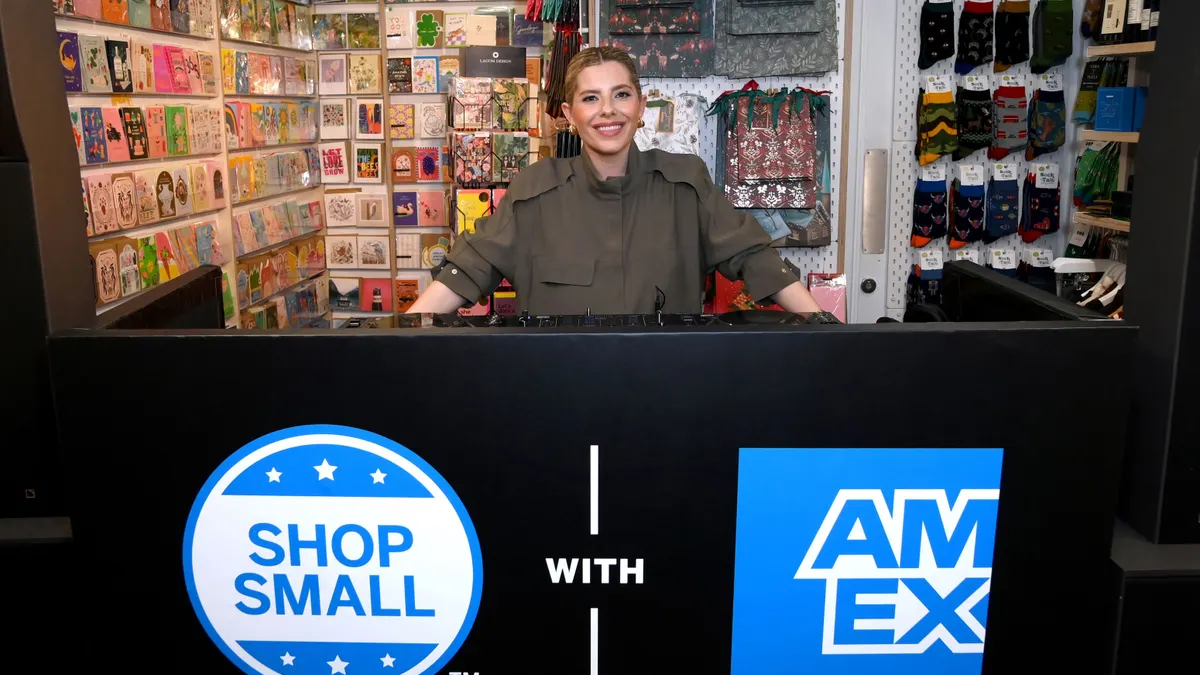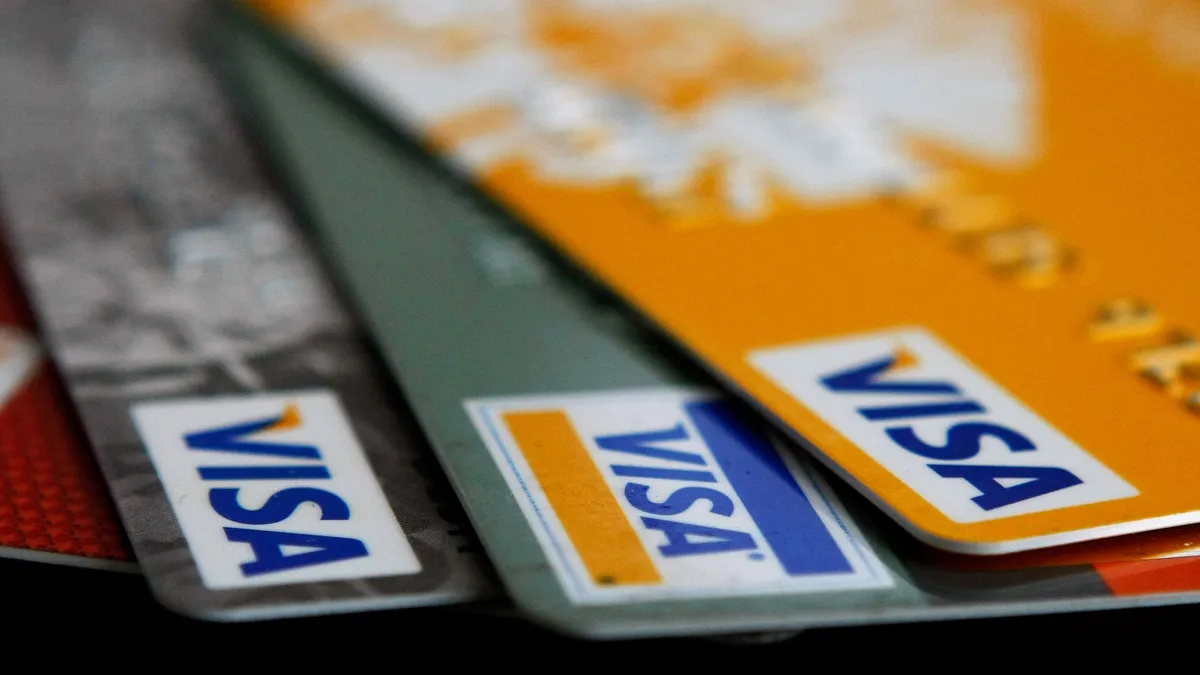The formation of the largest U.S. credit card issuer has taken a significant step forward, and consumer advocates are renewing their concerns about how credit card borrowers with weak credit scores will fare under an enlarged Capital One Financial.
The Justice Department will allow the $35 billion sale of Discover Financial Services to Capital One to proceed uncontested, according to media reports. The Justice Department’s new antitrust leader, Gail Slater, determined there isn’t sufficient evidence to challenge the acquisition in court, The New York Times and Bloomberg News reported Thursday, citing people familiar with the decision.
The DOJ clearance “is a disappointing display of Trump's supposed anti-monopolists failing to defend consumers from an anti-competitive transaction in an already consolidated industry,” Andrea Beaty, assistant director of the Revolving Door Project, a Washington-based advocacy group, said Friday in an email.
“In this case, Capital One’s acquisition of Discover stands to reduce options for consumers in the credit card industry and weaken the overall financial system in the event of an economic downturn.”
The DOJ assent is “a little surprising and concerning” given earlier media reports that Justice Department antitrust staff had raised questions about the deal, said Jesse Van Tol, president and CEO of the National Community Reinvestment Coalition, which has urged regulators to block Discover’s sale.
“It certainly looks like this was a political decision more than a substantive one made by career staff,” Van Tol said Friday in an interview. “The most disappointing thing about the Department of Justice is just how narrow the antitrust tools have become.”
Biggest in cards
The department announced a task force last month to target anticompetitive regulations. The DOJ Antitrust Division “will stand against harmful barriers to competition whether imposed by public regulators or private monopolists,” Slater said in a press release.
A spokesman for Capital One said Friday in an email that the deal “complies with the Bank Merger Act’s legal requirements and we remain well-positioned to gain approval.”
The DOJ and Discover declined to comment Thursday, as did the office of New York Attorney General Letitia James, who last year began an investigation of the proposed merger to assess whether it infringes on the state’s antitrust law.
Under the combination, Capital One would become the largest U.S. credit card issuer, with a credit card loan portfolio of about $250 billion, according to a Capital One February 2024 investor presentation. It would also gain control of Discover’s card payment network, a distant also-ran to rivals Visa, Mastercard and American Express.
Critics of the acquisition contend that consumers with low credit scores, generally below 670, will become even more vulnerable to higher costs as Capital One expands its share of the subprime card market. They also have told regulators that Capital One could increase fees for debit card use via its control of Discover’s network. Discover, like American Express, is considered a closed-loop system as they both issue cards and operate payment rails.
Capital One’s bid for Discover “poses a test case” for how the Trump administration will review proposed mergers and apply antitrust law, Adam Rust, director of financial services for the Consumer Federation of America, said Thursday in an email.
“Capital One will gain the benefits that come with owning a card network and see returns from scale. But will the public benefit as well?” Rust wrote. “Consumers with subprime credit will have fewer choices and may pay higher interest rates on balances. Merchants will pay higher interchange on debit transactions. What is being done to ensure the public benefits as well?”
The Capital One spokesperson responded by noting comments in April 2024 by Chairman and CEO Richard Fairbank about the deal. “We believe strongly that this merger will increase competition among banks and credit card issuers and payment networks, and provide significant benefits for consumers, merchants and the communities that we serve,” Fairbank said during a quarterly earnings call with analysts.
The card market is also less concentrated than a decade prior, Fairbank said, noting more than 4,000 issuers.
Remaining reviews
The Justice Department’s advisory review, which has not been released publicly, was sent to regulators with the Office of the Comptroller of the Currency, within the Treasury Department, and to the Federal Reserve Board of Governors, the Times and Bloomberg reported. Both of those agencies are still reviewing the deal. In December, the Delaware State Bank Commissioner approved the transaction.
The Federal Reserve declined to comment on Friday and a spokesperson for the OCC did not respond to a message seeking comment.
Capital One, based in McLean, Virginia, is already the largest card lender to subprime borrowers, and Discover would add roughly $20 billion to its subprime portfolio, according to a July 2024 letter to the OCC and Federal Reserve by the National Community Reinvestment Coalition, cosigned by about 100 consumer advocacy groups.
With the portfolio of suburban Chicago-based Discover Capital One would control roughly 31% of the subprime credit card market, according to the NCRC, which based its review on public filings by the 30 largest credit card lenders. Consumers with subprime scores are less able to migrate their business to other card lenders, thus reducing competition in that market, the groups said.
“This raises significant concerns about how this merger would reduce options for financially vulnerable customers and reduce the already limited competition on pricing for non-prime credit cards,” the groups wrote.
In 2023, subprime borrowers with scores below 660 accounted for nearly one-third of Capital One’s card portfolio, and 20% for Discover, according to the groups’ research.
Democrats in Congress have also decried Discover’s sale to Capital One, calling the latter a bank with a history of regulatory infractions. In November, Sen. Elizabeth Warren of Massachusetts and Rep. Alexandria Ocasio-Cortez of New York, wrote to regulators to urge them to consider Capital One’s M&A history, including its 2011 acquisition of ING Direct.
Another hurdle for Capital One and Discover may be the role of state attorneys general, who also could seek to block the deal if it’s uncontested at the federal level, Van Tol said.
“The question is whether they’ll put together a case and an argument that is compelling,” he said. “They do have to navigate around federal preemption issues.”
Caitlin Mullen contributed to this article.






















